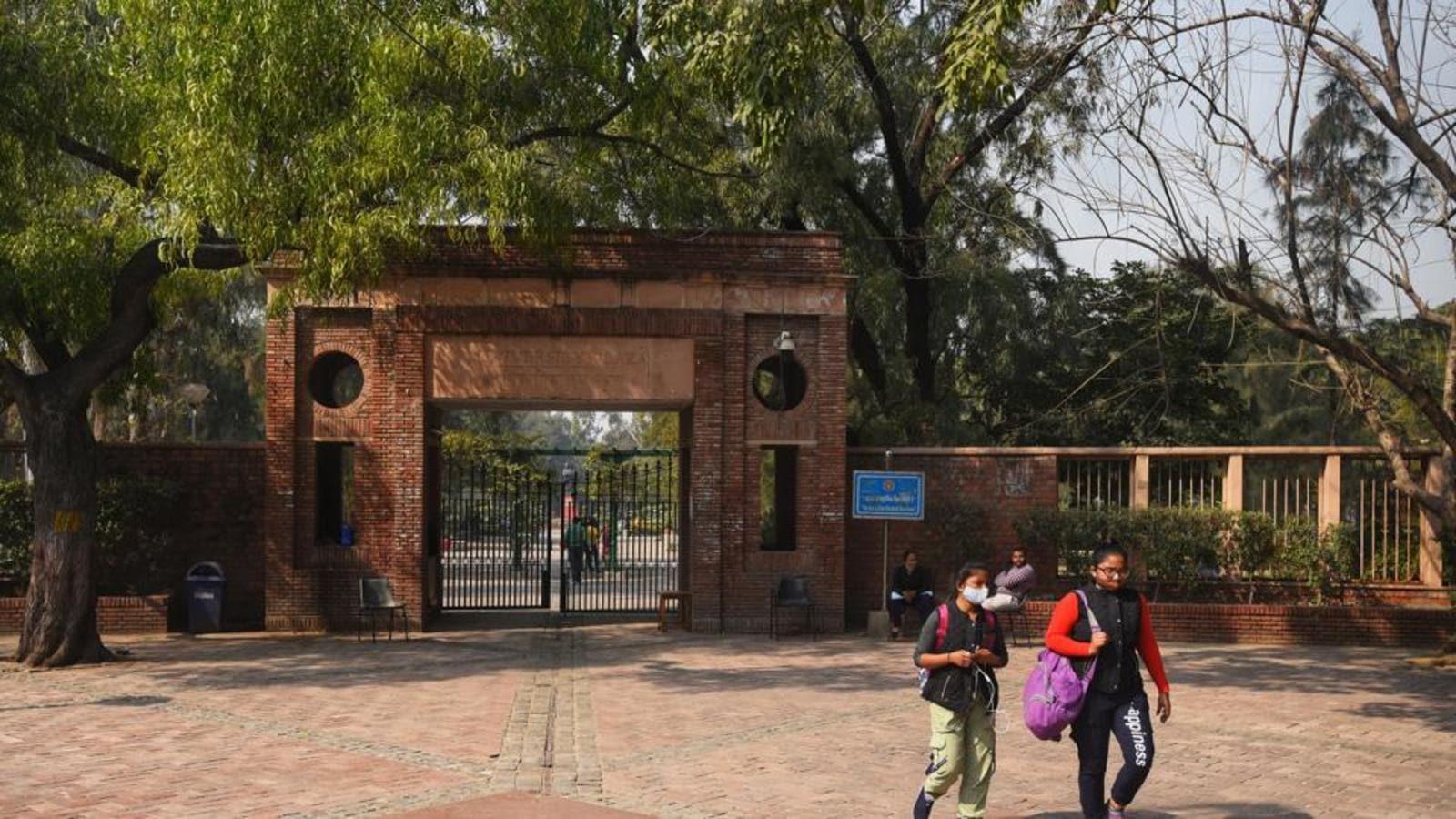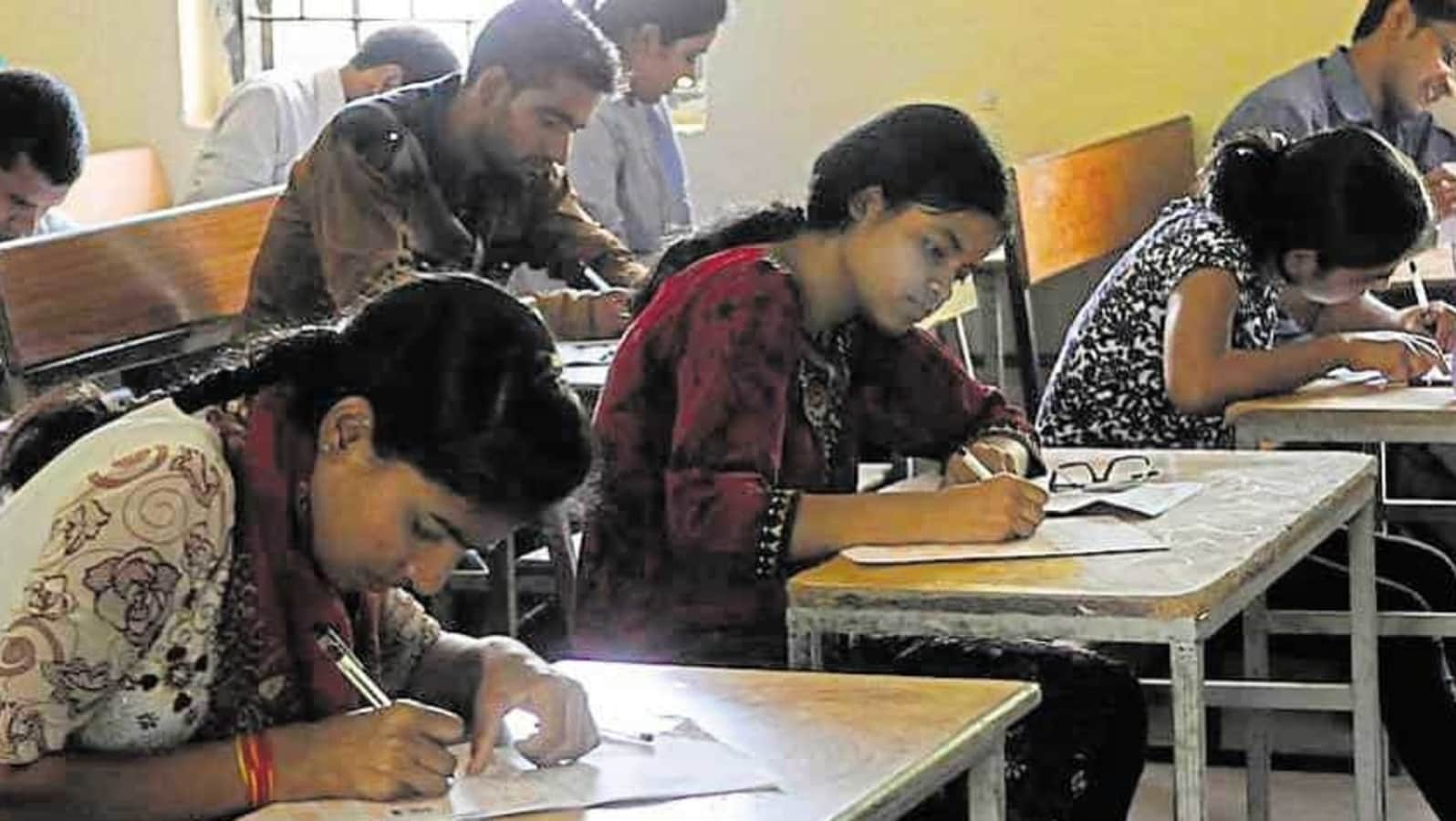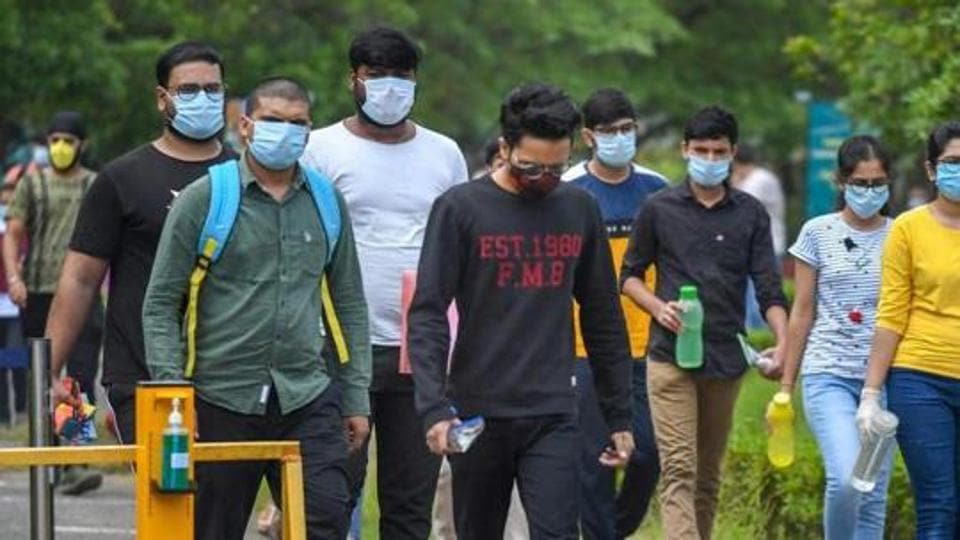DU’s uneasy tryst with the four-year undergraduate programme

Delhi College (DU) lately introduced its intention to reintroduce the four-year undergraduate programs from the upcoming educational session 2021-22 as part of the Nationwide Schooling Coverage (NEP) 2020. Even because the modalities of the proposed programme are but to be finalised, academics and college students have raised considerations over its return, eight years after it had change into one of the controversial schooling reforms undertaken by DU.
The four-year programme is about to return to the DU this 12 months with a number of exit choices. College students are more likely to get an choice to do an honours plus analysis diploma after finishing the four-year course. It additionally proposes to permit college students to restart their research precisely from the place they’d left, in case they resolve to exit.
The college had, in 2013, launched the four-year Undergraduate Programme (FYUP) amid a lot fanfare as a pet undertaking of the then vice-chancellor (V-C) Dinesh Singh underneath the United Progressive Alliance (UPA) authorities. The thought behind it was to change to a contemporary larger schooling format that was in tune with the worldwide larger schooling construction, and promote interdisciplinary studying and analysis on the undergraduate stage. The then Union schooling minister Kapil Sibal additionally supported the thought of transferring from three-year undergraduate programmes to four-year programmes.
Additionally Learn | Sharp rise in Delhi’s jobless throughout lockdown, ladies worst hit: Survey
The transfer triggered widespread protests by college students and academics between 2013-14. They mentioned that the programme was launched with out correct planning, consultations, assets, and course content material. A minimum of two petitions, for and in opposition to the implementation of FYUP, have been additionally filed within the Delhi excessive court docket throughout the identical interval.
Whereas the FYUP was fully backed by the college Grants Fee (UGC) on the time of its implementation, inside months of the Bharatiya Janata Get together (BJP)-led authorities coming into energy and Smriti Irani taking the cost because the Union schooling minister, the fee took a U-turn. In June 2014, the UGC issued a discover to the DU directing it to instantly scrap the FYUP and resume common three-year undergraduate programmes. It mentioned that four-year programmes weren’t a part of the earlier nationwide schooling coverage.
Instantly after the roll-back, college students, who have been enrolled as the primary FYUP batch, have been shifted again to the three-year format. Nevertheless, those that have been enrolled in Bachelor of Expertise (BTech) programmes the identical 12 months throughout 35 DU schools have been allowed to proceed their course. The college needed to once more fully change the best way it features.
By the way, when the identical BJP-led authorities final 12 months introduced the brand new NEP, 2020, it advocated the four-year undergraduate programmes. DU has, as soon as once more, determined to undertake the programme according to the NEP. A committee constituted by the college final 12 months to formulate the rules for the implementation of the NEP additionally submitted its suggestions on the construction of bachelor’s programs underneath the four-year mannequin in February.
Dinesh Singh, who’s now the chancellor of KR Mangalam college in Gurugram, mentioned the “abrupt” roll-back of FYUP was unlucky. “The one 12 months we tried the FYUP in DU, we had huge success. The variety of analysis papers by undergraduate college students shot up in that 12 months in DU. There have been many start-ups that got here into being. It’s unlucky that the programme was scrapped at a time when issues had begun to occur…It’s good that the federal government has now determined to introduce it underneath the NEP. We must always perpetually modify it and attempt to make it higher. Higher late than by no means,” he mentioned.
In accordance with the proposed construction of four-year programmes in DU, college students could now get the choice of pursuing three-year honours or four-year honours in a self-discipline or four-year honours in a self-discipline with analysis. The scholars will get a number of exit choices like beforehand launched FYUP. For example, they will exit after one 12 months and get a certificates, after two years, they’ll get a diploma and after three years, they are going to be awarded an honours diploma.
A big part of academics and college students on the college mentioned that their considerations haven’t been addressed within the new plan of introducing the four-year programme in DU.
Nandita Narain, an affiliate professor at St Stephen’s School who was the president of DU academics affiliation (DUTA) at the moment of the implementation and revocation of FYUP, mentioned that extra considerations have been added now. “The committee has tried to keep up that within the first three years the present course construction won’t be disturbed. Nevertheless, they’ve once more added some illogical programs within the first three years. They, in actual fact, proposed to take away some vital programs that are being already taught within the third 12 months and considering of placing them within the fourth 12 months. Why would college students waste one 12 months of their lives and cash for a similar programs they’re already finding out within the third 12 months? Apart from, they’ve once more proposed to introduce some topics within the first three years that are of no relevance to college students,” she mentioned.
The DU NEP implementation committee has proposed the introduction of recent topics reminiscent of language and literature, social and emotional studying, innovation and entrepreneurship, co-curricular, and ethics and tradition within the first three years of the programs. Underneath the beforehand launched FYUP, eleven “basis programs” have been made obligatory, together with language, literature and creativity, data expertise, enterprise, entrepreneurship, and administration.
Seema Das, a member of the college’s Govt Council (EC), DU’s highest decision-making physique, additionally mentioned that the standard of honours programs has been diluted with the introduction of some very primary programs within the undergraduate honours programmes within the “garb of multidisciplinarity.”
Mahamedha Nagar, who was enrolled in English (Hons) at Miranda Home within the first batch of FYUP college students, described her first 12 months of undergraduate as “chaotic”. “We have been pressured to check some basis programs that had nothing to do with our core topics. College students of Sanskrit (Hons) have been finding out arithmetic, these enrolled in Science programs have been pressured to jot down literary articles. It was so chaotic,” she mentioned.
Additionally Learn | Cycle tracks, eco-trails in revamp plan for 22km Yamuna riverfront
The opposite concern academics raised is the doable introduction of the “credit score switch system” which has been advocated by the NEP 2020. Underneath the system, each scholar may have a “credit score financial institution” i.e; an instructional repository. Credit will probably be transferred to this on-line system after the completion of yearly — 48 credit after one 12 months, 100 credit after two years, 148 credit after three years, and 196 after 4 years. The credit score switch will probably be allowed between nationwide and worldwide universities.
DU follows the choice-based credit score system format on the undergraduate stage underneath which college students are given a selection to select from prescribed programs, that are known as core, elective, and open elective programs. The marks are transformed into credit score factors and credit score grades utilizing formulae adopted by the respective college.
Pankaj Garg, an affiliate professor at Rajdhani School, mentioned this credit score switch system between universities would encourage the development of “digital programs”. “As per the NEP 2020 suggestions, a scholar can acquire 50-70% p.c credit by pursuing on-line programs from any establishment apart from their very own faculty. It means they will do some on-line programs from any institute and use the credit score factors to finish their undergraduate. This can fully undermine the educational high quality of the college. It’s going to ultimately encourage the development of attending on-line programs and reduce the workload of academics in college students’ dad or mum schools,” he mentioned.
The brand new four-year programme format will even permit college students to renew their schooling from the place they left in case they resolve to exit the course in between and they’d have the ability to use their credit score factors. That is one thing that was not there within the beforehand launched FYUP. “It is likely to be a superb choice for some college students who’ve some pressing monetary legal responsibility so that they wish to exit the course and work. However, it’ll majorly create a variety of confusion amongst college students. Many college students could find yourself exiting and becoming a member of the programs greater than as soon as,” mentioned Avinash Sharma, an undergraduate scholar at Shivaji School.
Lecturers mentioned that one other factor that was opposed in 2013 remains to be there within the newly proposed four-year programme — the “multiple-exit” choice. Monami Basu, an assistant professor at Kamala Nehru School, mentioned, that a number of exits have long-term repercussions on college students coming from marginalised sections and girls. “Increasingly more college students will exit after one or two years, take certificates and diplomas, and begin working. For ladies, it’s much more threatening. There are lots of ladies in our faculty who’ve been at warfare with their households to pursue larger schooling. The a number of exit choice will put them in a deprived place,” she mentioned.
A former DU administrator, who wished to not be named, mentioned, “DU shouldn’t repeat the identical mistake once more and introduce any new modifications within the programs after huge issues with all stakeholders. It ought to rethink its plan to implement a brand new course construction at a time when the educational cycle is already disrupted by a worldwide pandemic.”
DU appearing vice-chancellor PC Joshi had earlier mentioned that the college was able to implement the four-year programmes on the earliest. “The college has extensively labored on it within the final 6-7 months and we’re able to implement it now. We’re solely ready to get approvals from the statutory our bodies. I don’t suppose there will probably be a difficulty within the implementation since we’re not changing something. We’re solely including on to the present,” he advised HT.



